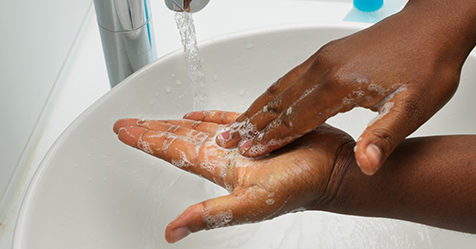Online Tool Estimates How Environmental Conditions Affect Coronavirus
The U.S. Department of Homeland Security’s (DHS) Science and Technology Directorate (S&T) has created an online calculator that estimates how long the SARS-CoV-2 virus that causes COVID-19 remains in the air under various environmental conditions.
DHS used results of ongoing research being conducted at S&T’s National Biodefense Analysis and Countermeasures Center in Maryland. Researchers believe COVID-19 is spread mainly through airborne respiratory particles from breathing, talking, and coughing, and potentially through contact with contaminated surfaces. Using simulated saliva, S&T researchers evaluated the impact of environmental conditions on the SARS-CoV-2 virus in temperatures ranging from 50 to 86 degrees Fahrenheit, relative humidity of 20% to 70%, and sunlight with an ultraviolet (UV) index up to 10. They found the virus is most stable indoors and least stable in the presence of sunlight.
The calculator is designed to assist response efforts and minimize person-to-person transmission by analyzing environmental factors that may impact the ability of the virus to spread. It has been added to an online kit that includes a tool that models survival of SARS-CoV-2 on nonporous surfaces indoors.


